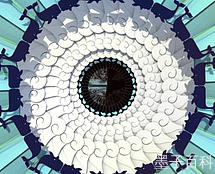Matter is a term used in the field of physics to refer to any substance that occupies space and has mass. It is the fundamental building block of the universe. Matter can exist in three states: solid, liquid, and gas. In the solid state, particles are closely packed and have a fixed shape and volume. In the liquid state, particles are loosely packed and have a definite volume but not a fixed shape. In the gas state, particles are far apart and have neither a fixed shape nor a definite volume.
Matter is made up of tiny particles called atoms and molecules. Atoms are the smallest unit of an element that retains its chemical properties, while molecules are made up of two or more atoms bonded together. These particles are constantly in motion, which gives matter its kinetic energy.
The behavior of matter can be described by various physical properties, such as mass, volume, density, and temperature. Mass is the measure of the amount of matter in an object, while volume is the amount of space occupied by the object. Density is the ratio of mass to volume, and it determines whether an object sinks or floats in a given medium.
Matter can undergo physical and chemical changes. Physical changes do not alter the chemical composition of a substance, such as melting ice or boiling water. In contrast, chemical changes result in the formation of new substances with different properties, such as burning wood or rusting metal. These changes can be explained by the interaction of atoms and molecules.
In conclusion, matter is the fundamental substance that makes up everything in the universe. It exists in different states and can be described by various properties. Understanding matter is crucial for explaining the behavior and interactions of all objects in the physical world.















